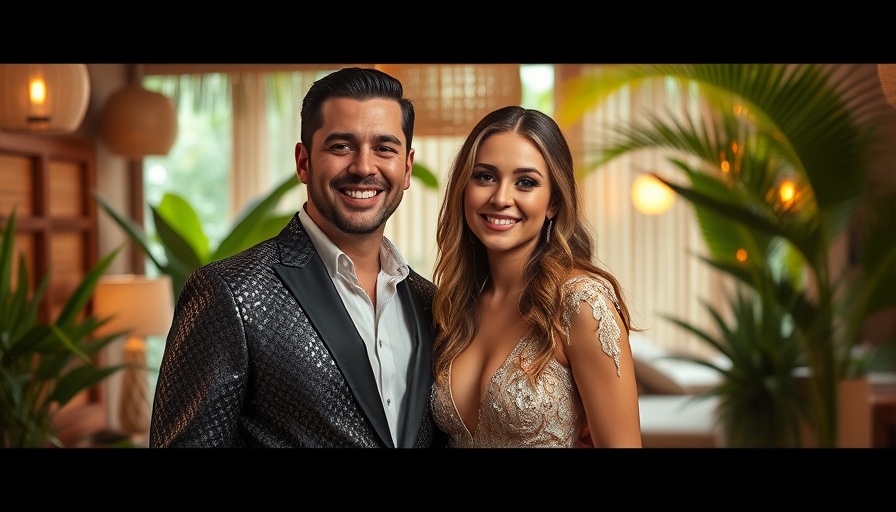
Exploring the Newfound Fascination with Virginity on Reality TV
In recent television trends, virginity has become a hot topic, swirling with curiosity, shame, and societal reflection. Shows like TLC’s Virgins and Hulu’s Are You My First? steer the narrative of sexual purity into uncharted waters, showing audiences how virginity continues to shape perceptions of romance and intimacy. These programs ask probing questions: what does it mean to be a virgin today in a world where sexual freedom and “doing it your own way” dominate the cultural conversation?
The Historical Lens of Virginity and Its Appeal
The fascination with virginity isn't a modern phenomenon but rather a reflection of historical views of sexual purity. For centuries, the concept of virginity has been tethered to patriarchal standards of morality and social status. As history shows, figures like the Virgin Mary emphasize the societal importance of chastity, an ideal that has undergone radical transformation since the sexual revolution of the 1960s and '70s.
Post-revolution, virginity morphed into a subject that, while causing shame, also opened the door for new comedic narratives—a swinging pendulum of liberation amidst constraints. As we find ourselves in a world of changing sexual norms, understanding this historical backdrop enriches our insight into why virginity stands resilient in popular media.
Today's Generation: Late Bloomers in the Spotlight
Enter Gen Z—a generation often labeled as late bloomers when it comes to sex and romance. They have been portrayed as cautious, perhaps even disenchanted with the hypercharged dating culture surrounding them. Reports indicate a disturbing trend that crosses generations known as the “sex recession,” where fewer young adults are engaging in sexual activities compared to previous decades.
According to experts, the virginity TV trend allows for a collective examination of this phenomenon. Reality shows present these intimate journeys not only as entertainment but also as a dialogue about the broader shifts in sexuality and relationships—enabling viewers to reflect on their desires, anxieties, and misgivings.
The Cultural Context of Virginity-Driven TV
Dr. Alexandra Solomon, a clinical psychologist, notes that the rise of virgin-focused programs might reflect a reaction to a political climate growing increasingly conservative. Younger generations, faced with complex societal pressures, might find solace, humor, or even earnestness in watching others navigate the challenges of intimacy.
It’s more than voyeurism; it’s a way to relate to peers struggling with the same heavy expectations of romance and connection in what can often feel like a disheartening world. The success of these shows speaks to our collective yearning for understanding and compassion, serving up relatable struggles centered around issues of virginity and sexuality possessed of deep-rooted shame, urgency, and an innate desire to connect.
Why TV Shows About Virginity Matter Today
The appeal of shows focusing on virginity can also be seen as commentary on the uncertainty and complexity surrounding modern love. Instead of just fixating on the act itself, these programs dig deeper, posing essential questions about relational dynamics, emotional intelligence, and the quest for intimacy in a hyper-connected yet often isolating world.
As viewers tune in to these narratives, they not only consume entertainment but also engage with the multi-faceted discussions on health and wellness, the cultural interpretation of sexuality, and their own feelings about intimacy.
Understanding Virginity: An Evolving Perspective
Ultimately, the current obsession with virginity on reality television reflects evolving attitudes about sex and relationships. The multi-layered representation offers various perspectives—sometimes comedic, sometimes heartfelt—prompting viewers to question their own values and experiences.
It encourages an emotional dialogue about sexuality, romantic ideals, and what it truly means to embrace or challenge societal paradigms. These shows are not just about the characters portrayed; they give voice to broader societal themes that affect everyone, creating a crucial intersection between entertainment and cultural reflection.
Wrap-Up: Embrace the Discussion
In a world where virginity is portrayed as both a badge of honor and an obstacle to overcome, audiences are left with rich material for personal reflection and discussion. As we indulge in the voyeuristic thrill of reality TV, we must also recognize the deeper implications of these narratives.
Reflect on your own views about intimacy, love, and societal expectations as you explore these complex themes portrayed in the ever-evolving realm of virginity on television. Let's engage in conversations that transform how we perceive and value our relationships—on screen and off.
 Add Element
Add Element  Add Row
Add Row 



Write A Comment